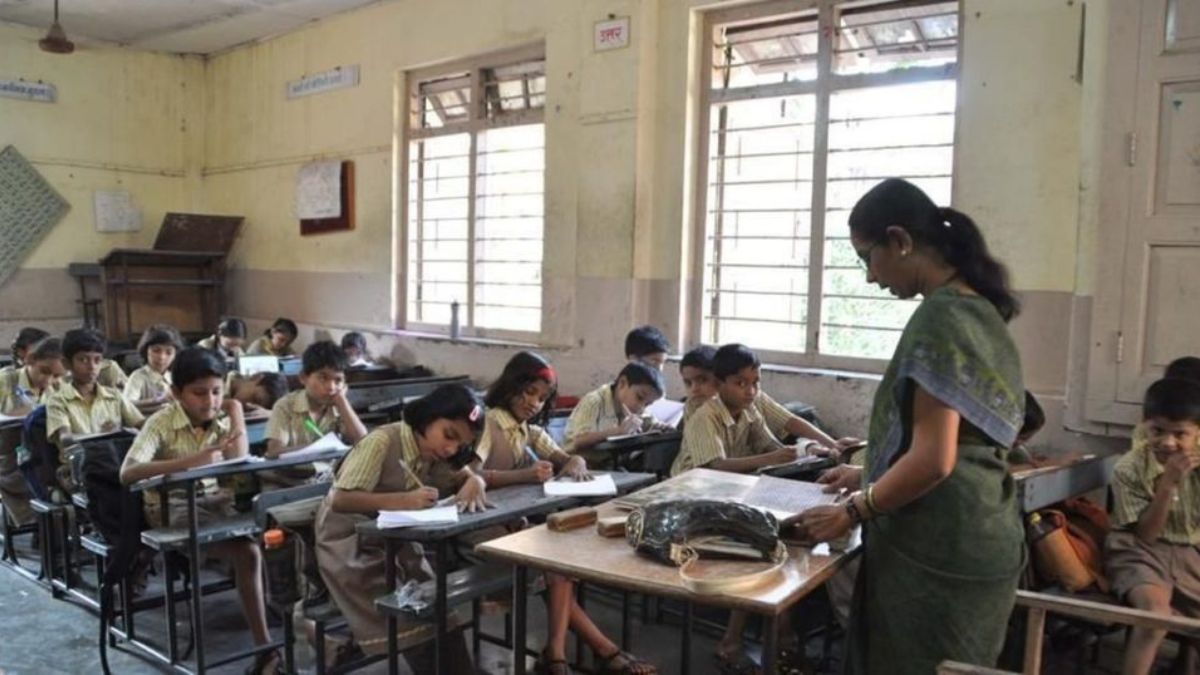Gujarat : IAS Officer Exposes Dismal State of Education System in Government Schools
Dhaval Patel, the Commissioner of the Geology and Minerals Department, recently visited six taluka schools in Chhota Udaipur district as part of the Shala Pravesotsav programme (school admission programme), where he was disheartened by the dismal situation he encountered.

Advertisement
Surat : A senior IAS officer, Dhaval Patel, has shed light on the deplorable condition of the education system in Gujarat‘s government schools, sparking concerns and discussions about the quality of education provided to students.
Dhaval Patel, the Commissioner of the Geology and Minerals Department, recently visited six taluka schools in Chhota Udaipur district as part of the Shala Pravesotsav programme (school admission programme), where he was disheartened by the dismal situation he encountered. His observations prompted him to write a letter to the Gujarat Government, expressing his concerns about the deteriorating state of education in government schools across the state.

The revelation made by the senior IAS officer has caused a stir in Gujarat’s political circles, particularly with the upcoming Lok Sabha elections in 2024.
The Minister of State for Education, Praful Panseriya, who is known for his social media presence and occasional surprise visits to schools, has faced criticism for not adequately addressing the issues plaguing government schools. While Panseriya has showcased his concern for the health of underprivileged children by cleaning school toilets in videos, the focus on providing quality education seems to have been neglected.
During his visit to the schools, Patel interacted with the students and asked them some general questions. To his dismay, many students were unable to answer even the simplest of questions. The IAS officer witnessed a concerning lack of basic knowledge and skills among the students, particularly in subjects like mathematics and geography.
Students struggled to answer basic math problems like 42-18 and 30+2, and were unable to identify Gujarat and the Himalayas on a map of India. Patel discovered that tribal students in government primary schools in Chhota Udaipur lacked basic understanding, including the opposite of day and light.
Patel’s letter to the government highlighted the alarming state of affairs in the schools. While the physical infrastructure and teacher numbers may seem satisfactory, the quality of education and students’ knowledge were major concerns. He noted that during exams, students were able to write essays on topics like preparing lemon juice in English, but were unable to read what they had written. Additionally, students struggled with simple tasks like counting the legs of eight horses and reciting the multiplication tables.
The letter from Dhaval Patel to the Secretary of the Primary Education Department in Gujarat has ignited a much-needed conversation about the urgent need for reforms and improvements in the state’s education system. It has raised questions about the effectiveness of the government’s efforts and the allocation of resources towards providing quality education to students in government schools. The concerns expressed by Patel underline the importance of focusing on educational development and equipping students with the skills they need to thrive in today’s competitive world.
Advertisement

